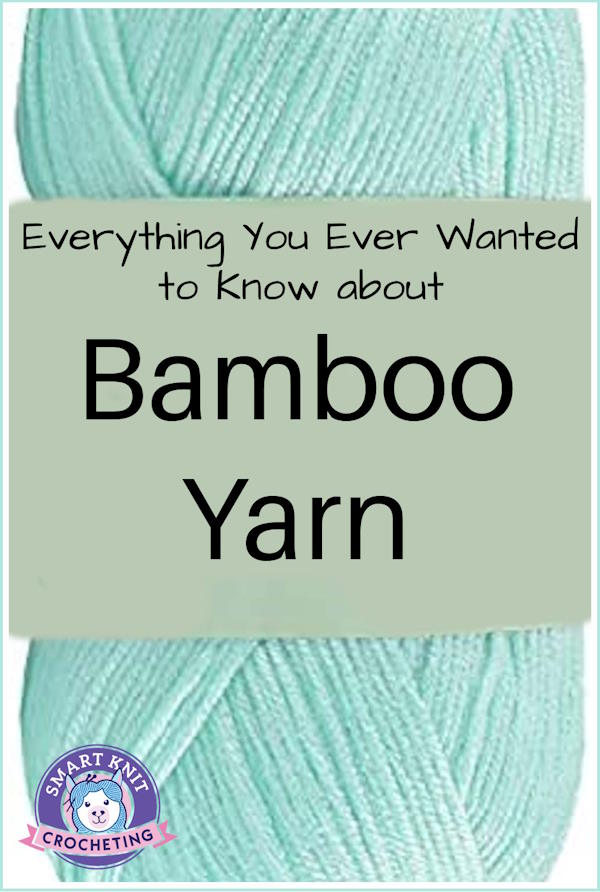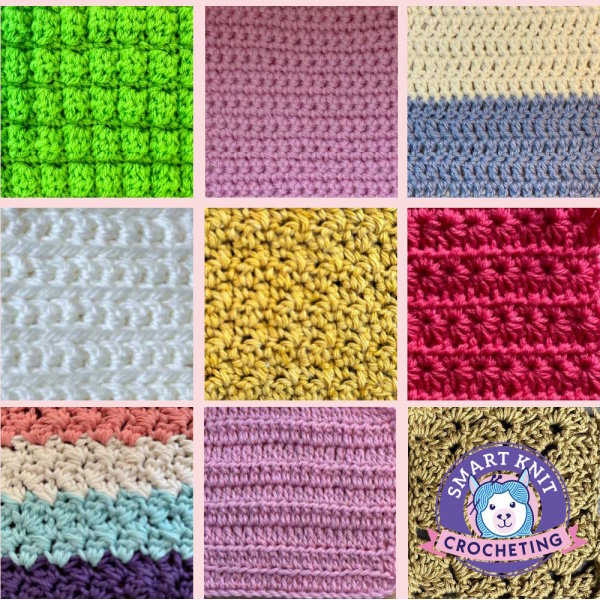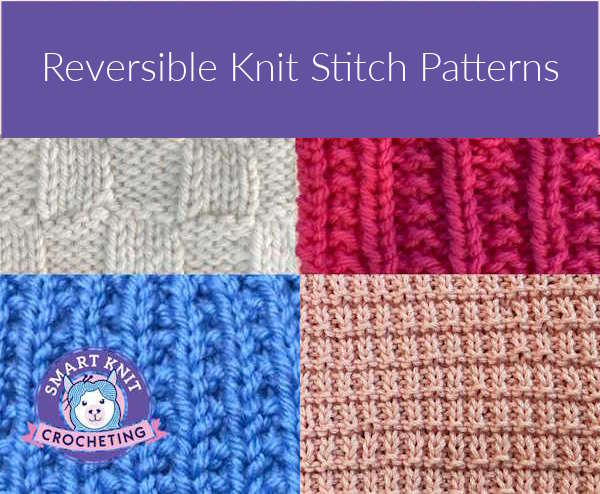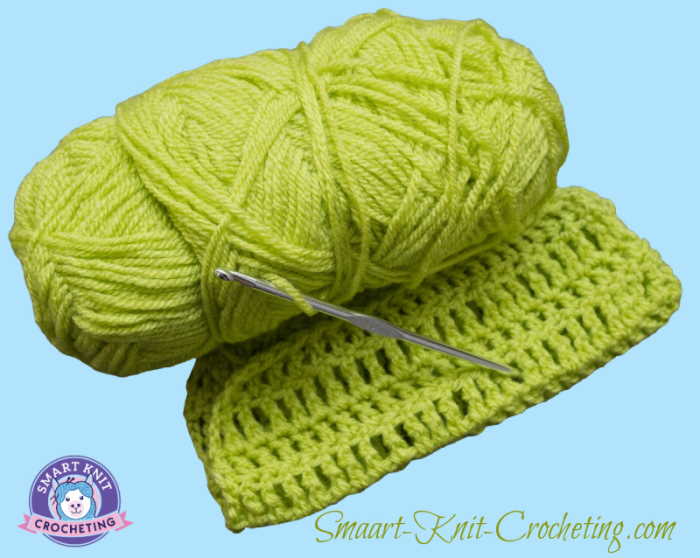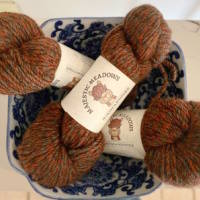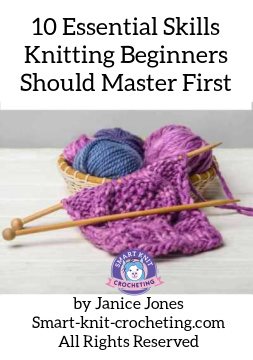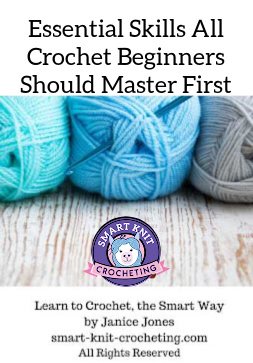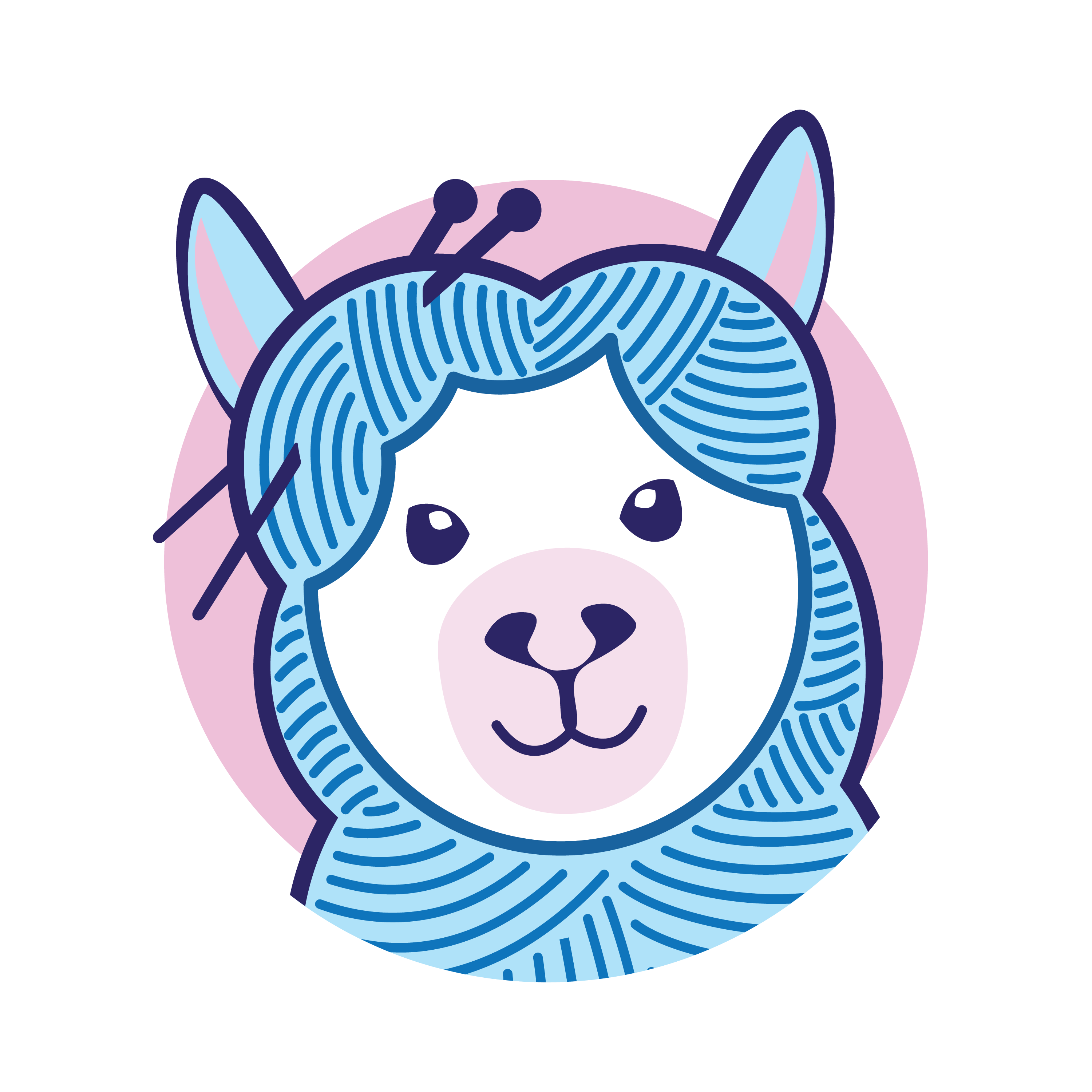- Home
- Bamboo Yarn for Knitting and Crocheting
Eco-Friendly Crafting: Discover Bamboo Yarn for Knitting and Crochet
Bamboo Yarn for Knitting and Crocheting by Janice Jones
As more and more people embrace eco-conscious living, it's no surprise that the world of crafting has also taken a greener turn.
Knitting has seen a rise in the popularity of sustainable and eco-friendly materials, and one such material that has been gaining traction is bamboo yarn.
Not only is bamboo yarn a renewable resource, but it also has a range of benefits that make it an excellent choice for those who want to create beautiful and sustainable pieces.
In this article, we'll explore the many benefits of bamboo yarn and offer tips and tricks on how to make the most of this versatile material in your knitting projects.
Whether you're a seasoned knitter or just starting out, going green with your knitting has never been easier or more rewarding!
Introduction to Bamboo Yarn For Knitting and Crochet
Bamboo yarn is a relatively new type of yarn that has gained popularity in recent years due to its eco-friendliness. It is made from bamboo grass, a fast-growing and sustainable resource that does not require pesticides or fertilizers to grow.
The process of turning bamboo into yarn involves a mechanical process that breaks down the bamboo into a pulp and then extrudes it into a fine fiber.
When you first touch bamboo yarn, you'll notice its softness and silky texture. It has a natural sheen that gives it a luxurious look and feel. Additionally, bamboo yarn is highly durable and can withstand wear and tear, making it a great option for long-lasting projects.
Characteristics of Bamboo Yarn for Knitting and Crochet
Bamboo yarn has several unique characteristics that make it an excellent choice for crafting. Firstly, its softness and drape make it perfect for creating clothing items such as scarves, wraps, and shawls. The yarn's natural sheen also adds a touch of elegance to these projects.
Secondly, bamboo yarn is highly breathable and moisture-wicking, making it ideal for summer garments. It can keep you cool and comfortable in hot weather, making it a great alternative to synthetic fibers.
Thirdly, bamboo yarn is hypoallergenic and antimicrobial, making it an excellent choice for people with sensitive skin. It is also resistant to odors, making it a great material for items that need to be washed frequently, such as baby clothes.
Pros and Cons of Using Bamboo Yarn for Knitting and Crochet
Like any material, bamboo yarn has its pros and cons. On the positive side, bamboo yarn is eco-friendly, soft, durable, and breathable. Additionally, it is easy to care for and can be machine washed and dried.
On the negative side, bamboo yarn can be more expensive than other types of yarn, and it may not be as widely available in local craft stores.
Additionally, some crafters find that bamboo yarn can split easily when worked with, making it challenging to work with for beginners.
Benefits of Using Bamboo Yarn
Bamboo yarn is a natural fiber that comes from the pulp of the bamboo plant. It has many benefits that make it an excellent choice for eco-conscious knitters. Here are some of the benefits of using bamboo yarn:
1. Softness
Bamboo yarn is known for its softness, which makes it a great choice for knitting cozy garments and accessories. The fiber is naturally smooth and silky, which means that it won't irritate sensitive skin. Bamboo yarn is also hypoallergenic, making it perfect for those who suffer from allergies.
2. Breathability
Bamboo yarn is highly breathable, which means that it can keep you cool in the summer and warm in the winter. This makes it a great choice for knitting all-season garments like shawls, scarves, and sweaters.
3. Sustainability
Bamboo yarn is a sustainable material because bamboo is a renewable resource. Unlike cotton, which requires large amounts of water and pesticides to grow, bamboo is naturally pest-resistant and requires very little water. Bamboo plants also grow quickly and can be harvested every few years without damaging the environment.
One Fiber, Many Names: Bamboo Yarn for Knitting and Crochet
I don't know about you, but I was thoroughly confused when I started reading about different names for practically the same product. (Rayon, Viscose, Bamboo, Modal, Tencel/Lyocell).
It turns out that they are all natural plant resources that use a synthetic process to extrude and create the fibers used for the yarn.
Rayon is made from the wood of eucalyptus, spruce, and pine trees, but can also be made from cotton or bamboo.
Bamboo is a rayon that uses bamboo as the source material, turning bamboo stalks into fibers and the final resulting yarn.
Modal and Tencel/Lyocell are also types of Rayon. Modal is derived from beech trees and Lyocell is produced from a variety of wood sources.
Viscose is one of the most popular materials but you may know it as rayon. It's a semi-synthetic fiber that is also made from trees.
Eco-friendly Aspects of Bamboo Yarn and Other Similar Fibers
In addition to being a sustainable material, bamboo yarn has many other eco-friendly aspects that make it a great choice for eco-conscious knitters and crocheters.
1. Biodegradability
Bamboo yarn is biodegradable, which means that it won't contribute to landfill waste when it's disposed of. This is because bamboo is a natural material that will break down over time.
2. Low Carbon Footprint
Bamboo yarn has a low carbon footprint because bamboo plants absorb more carbon dioxide from the atmosphere than other plants. This means that bamboo yarn production has a lower impact on the environment than other types of yarn.
3. Vegan-friendly
Bamboo yarn is a vegan-friendly material because it comes from a plant and does not involve any animal products or by-products in its production.
What to Make with Bamboo Yarn - Options for Crochet and Knitting Projects
Bamboo yarn is incredibly versatile and can be used for a wide range of crochet and knitting projects. Here are some ideas:
1. Summer Garments
Bamboo yarn's breathability and moisture-wicking properties make it ideal for creating lightweight summer garments such as tank tops, dresses, and skirts.
The softness and drape of the yarn also make it perfect for creating flowing and elegant designs.
Bamboo summer tank top
This lightweight and breathable tank top is perfect for summer. It's knit with Patons Bamboo Silk and features a lace panel on the front.
Bamboo Shawl
This cozy and soft shawl is perfect for snuggling up in on chilly evenings. It's knit with Bernat Bamboo and features a simple lace pattern.
2. Accessories
Bamboo yarn's natural sheen makes it an excellent choice for creating accessories such as scarves, shawls, and wraps. The yarn's softness also makes it ideal for creating hats and gloves.
3. Baby Clothes
Bamboo yarn's hypoallergenic and antimicrobial properties make it a great choice for creating baby clothes. It is also soft and gentle on delicate skin, making it perfect for creating blankets, booties, and onesies.
Bamboo Baby Blanket
This soft and gentle baby blanket is perfect for wrapping up your little one. It's knit with Lion Brand Yarn LB Collection Bamboo and features a simple garter stitch pattern.
Tips for Crocheting with Bamboo Yarn
Crocheting with bamboo yarn can be challenging, but with a few tips, you can create beautiful projects.
- Use a larger hook: Bamboo yarn is more delicate than other types of yarn, so using a larger hook can help prevent splitting. A larger hook will also help create a looser stitch, which will showcase the yarn's drape and softness.
- Work slowly: Bamboo yarn can split easily, so it's essential to work slowly and carefully. Take your time and ensure that each stitch is secure before moving on to the next one.
- Avoid frogging: Frogging (ripping out stitches) can cause the yarn to split even more. If you make a mistake, try to fix it without ripping out the stitches. Alternatively, you can cut the yarn and start again to avoid damaging the fibers.
Tips for Knitting with Bamboo Yarn
Knitting with bamboo yarn is similar to crocheting, but there are a few additional tips to keep in mind.
- Use the right needles: Bamboo yarn is slippery, which means that it can be difficult to control on metal needles. Using bamboo or wooden needles can help you grip the yarn better and prevent it from slipping.
- Use a smaller needle size: Bamboo yarn can stretch out over time, especially if it's used for a garment that's worn close to the skin. Using a smaller needle size than recommended can help you get a tighter gauge and prevent the finished project from stretching out.
- Block your finished project: Blocking is an important step in knitting, but especially with bamboo yarn because it can help you shape the finished project and prevent it from stretching out. To block your finished project, soak it in lukewarm water, gently squeeze out the excess water, and then lay it flat to dry.
Comparing Bamboo Yarn to Other Eco-Friendly Yarn Options
Bamboo yarn is not the only eco-friendly yarn option available. Other popular options include organic cotton, hemp, and recycled fibers. Here's how bamboo yarn compares:
1. Organic cotton
Organic cotton is another sustainable yarn option that is hypoallergenic and soft. However, it may not be as durable as bamboo yarn and is often more expensive.
2. Hemp
Hemp is a durable and eco-friendly yarn option that is similar in texture to linen. It is also hypoallergenic and antimicrobial, making it a great choice for people with sensitive skin. However, it can be challenging to find in local craft stores.
3. Recycled fibers
Recycled fibers are made from materials such as plastic bottles and old clothing, making them an excellent choice for the environment. However, they may not be as soft or luxurious as bamboo yarn and may not be suitable for all projects.
Where to Buy Bamboo Yarn
Bamboo yarn can be found in most online craft stores, as well as some local craft stores.
Some popular brands include Plymouth Yarn, Lion Brand, and Patons.
When buying bamboo yarn, be sure to check the weight and yardage to ensure that you have enough for your project.
Popular Brands of Bamboo Yarn for Knitting and Crochet
There are many brands of bamboo yarn available, each with their own unique properties and colors. Here are some popular brands of bamboo yarn:
If you’d like to try a bamboo yarn, here are a few options:
1. Patons Bamboo Silk
Patons Bamboo Silk is a luxurious blend of bamboo and silk that's perfect for knitting soft and silky garments and accessories.
- 70% Viscose from Bamboo/30% Silk
- Needle size 6 or hook size G6
- Hand wash, dry flat

2. Universal Yarn Bamboo Pop
- 50% Bamboo 50% Cotton
- Hook: G (4.50mm) Needles: US 6 (4mm)
- DK | Light Worsted
- 3.5oz
Check for Pricing on Universal Yarn Bamboo Pop
3. Lion Brand Truboo
Lion Brand Yarn Truboo is a versatile bamboo yarn that's perfect for all types of knitting projects. It comes in a range of beautiful colors and is perfect for creating cozy and comfortable garments and accessories.
- Each cake weighs 3 oz. (85 g) and is 195 yd. (178 m) long
- 96% rayon from bamboo and 4% polyester and has a touch of shine.
- CYC #3 light, making it a good yarn for any craft or craft kit.
- Machine washable in cool water and lay flat to air-dry.

4. Valley Yarns 5/2 Bamboo
- 52% Pima Cotton/48% Bamboo
- DK, Worsted
- GAUGE: 5 sts = 1" on US 7
- 50g/105yds
- Hand Wash

5. JubileeYarn Delightfully Bold
- 2 skeins per pack. Each skein is 100g; 90 meters (98 yards)
- 60% bamboo rayon, 40% bamboo tencel
- 4 Medium / worsted / afghan / aran weight
- Knitting needle size: US 7 (4.5mm). Crochet hook size: I-9
- Machine wash warm on gentle cycle. Tumble dry delicate. Dry flat in shade. Do not

6. Yonkey Monkey
- 70% Bamboo, 30% Cotton
- 50 grams / 1.75 oz each ball
- Machine washable
- 230 yards (210 m) per Skein
- WPI 22. Needle size: 5-7 (US Size)

7. Himalaya Deluxe Bamboo
- Himalaya Deluxe Bamboo 3 Skein bundle
- 3 Skein 300 Gram 820 yard
- 60% Bamboo 40% Cotton
- Machine Wash

8.Premier Yarns Bamboo Select Yarn
- Rayon 80, Wool 20
- 106 yd (97m) 1.76 oz (50g)
- Tumble Dry, Machine Wash,Do Not Iron, Do Not Dry Clean, Dry Flat

Pros and Cons of Bamboo and Related Fiber Yarns
Pros:
- Soft, smooth
- Lovely drape,
- Hypoallergenic and antibacterial
- Breathable
- Lightweight
- Strong and durable
Cons
- May loose it's shape
- Not very elastic
- Susceptible to mildew
- Looses strength in water
- Tends to split when knitting
- Tend to slip off needles (use bamboo or wood needles)
Caring for Bamboo Yarn Projects
Bamboo yarn projects require special care to keep them looking their best. Here are some tips for caring for bamboo yarn projects:
- Hand wash: Bamboo yarn is delicate and can be damaged in the washing machine. Hand washing your bamboo yarn projects in lukewarm water with a gentle detergent is the best way to keep them looking their best.
- Dry flat: Bamboo yarn projects should be dried flat to prevent them from stretching out. You can lay them on a towel or drying rack to dry.
- Store carefully: Bamboo yarn projects should be stored carefully to prevent them from getting damaged. Fold them neatly and store them in a cool, dry place away from direct sunlight.
Eco-Friendly Benefits of Using Bamboo Yarn for Knitting and Crochet
Using bamboo yarn for crafting has several eco-friendly benefits.
Firstly, bamboo is a sustainable resource that does not require pesticides or fertilizers to grow.
Additionally, the process of turning bamboo into yarn is less harmful to the environment than the process of turning other fibers into yarn.
Secondly, bamboo yarn is biodegradable and will not contribute to landfill waste. When you're done with your project, you can simply compost or recycle the yarn.
Conclusion and Final Thoughts about Bamboo Yarn for Knitting and Crochet
Bamboo yarn is a versatile and eco-friendly material that is perfect for crafting. Its softness, durability, and sustainability make it an excellent choice for a wide range of projects, from summer garments to baby clothes.
When working with bamboo yarn, be sure to use a larger hook or smooth needles and work slowly to prevent splitting.
If you're looking for an eco-friendly yarn option that's soft, luxurious, and sustainable, be sure to give bamboo yarn a try. You can buy bamboo yarn online or in some local craft stores. Happy crafting!

